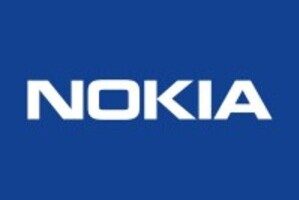Mobile Edge Computing
Arqit accelerates 5G Open-RAN to meet future communications to develop new telecoms networks in UK
A new technology that will allow industries to deploy their own private, flexible, and secure 5G networks across their business areas is being developed by a consortium of companies from
Read moreVerizon deploys more than 8,000 VRAN cell sites, marches towards goal of 20,000
New York, United States – Verizon, the provider in virtualised radio access network (VRAN) innovation, has now deployed over 8,000 virtualised cell sites with a goal of deploying over 20,000 by
Read moreNokia and Etisalat UAE, from e&, to launch 5G private wireless networks
Abu Dhabi, United Arab Emirates – Nokia announced it has signed an agreement with Etisalat UAE, the telecoms pillar of e& in the UAE, to deploy 5G private wireless networks to support enterprises across Abu Dhabi. The
Read moreNokia WING chief says it’s not too early to add 5G and edge capabilities for IoT
Nokia launched WING, its Worldwide IoT Network Grid, in 2017 to provide organisations with a single global supplier of connectivity, edge and other resources with the aim of accelerating and
Read moreGSMA Telco Edge Cloud turns to MobiledgeX to take ownership of the edge marketplace
With the recent announcement that China Unicom, Deutsche Telekom, EE, KDDI, Orange, Singtel, SK Telecom, Telefonica and TIM are working together, with the support of GSMA, to develop an interoperable
Read moreHow cloud is evolving to handle the demands of AI
Just as cloud is becoming more widespread, and organisations are wrestling with the new challenge of managing multiple cloud providers, a few experts are predicting cloud’s demise. In my view,
Read moreAre you taking the necessary steps to prepare yourself and your network today?
It’s no surprise that a robust, resilient, and reliable network is one of the most important drivers for business success. Organisations are having to continuously improve their network infrastructure to
Read moreOn the edge of innovation – how MEC is creating opportunities
Mobile operators across the globe have invested billions in their LTE networks, only to see them overrun by internet brands which have been eating into their service revenues. However, the
Read moreHow 5G will enable the smart cities of the future
Today’s cities are becoming smarter and more connected in order to solve the emerging challenges presented by increasing urbanisation and growing population levels, writes Steve Woo, the vice president of
Read moreHow the edge can help mobile operators monetise VR and AR
There’s bad news and good news, writes Shamik Mishra, the associate vice president of the innovation team at Aricent. By next year, according to industry insiders, the over-the-top (OTT) market
Read more












